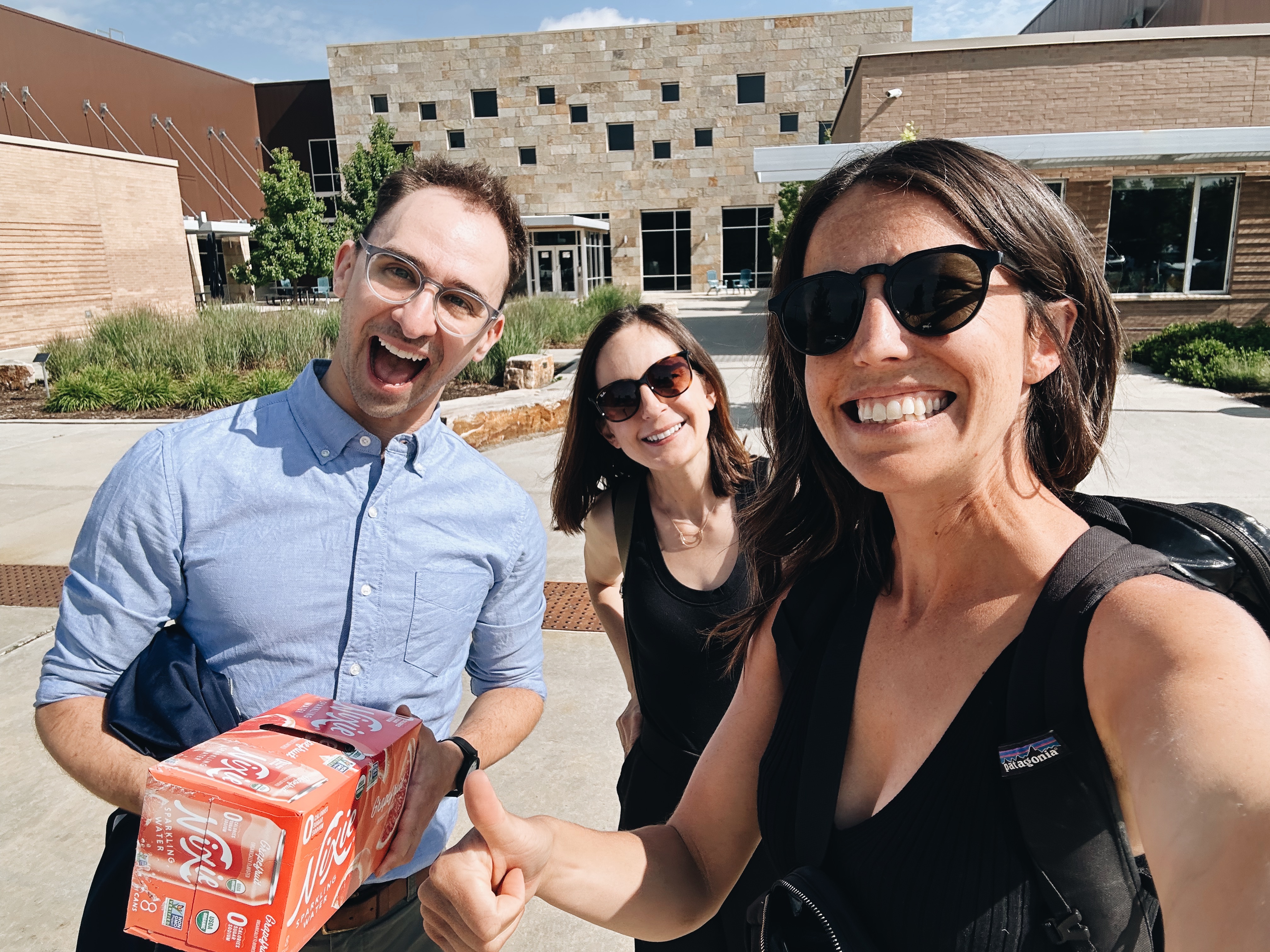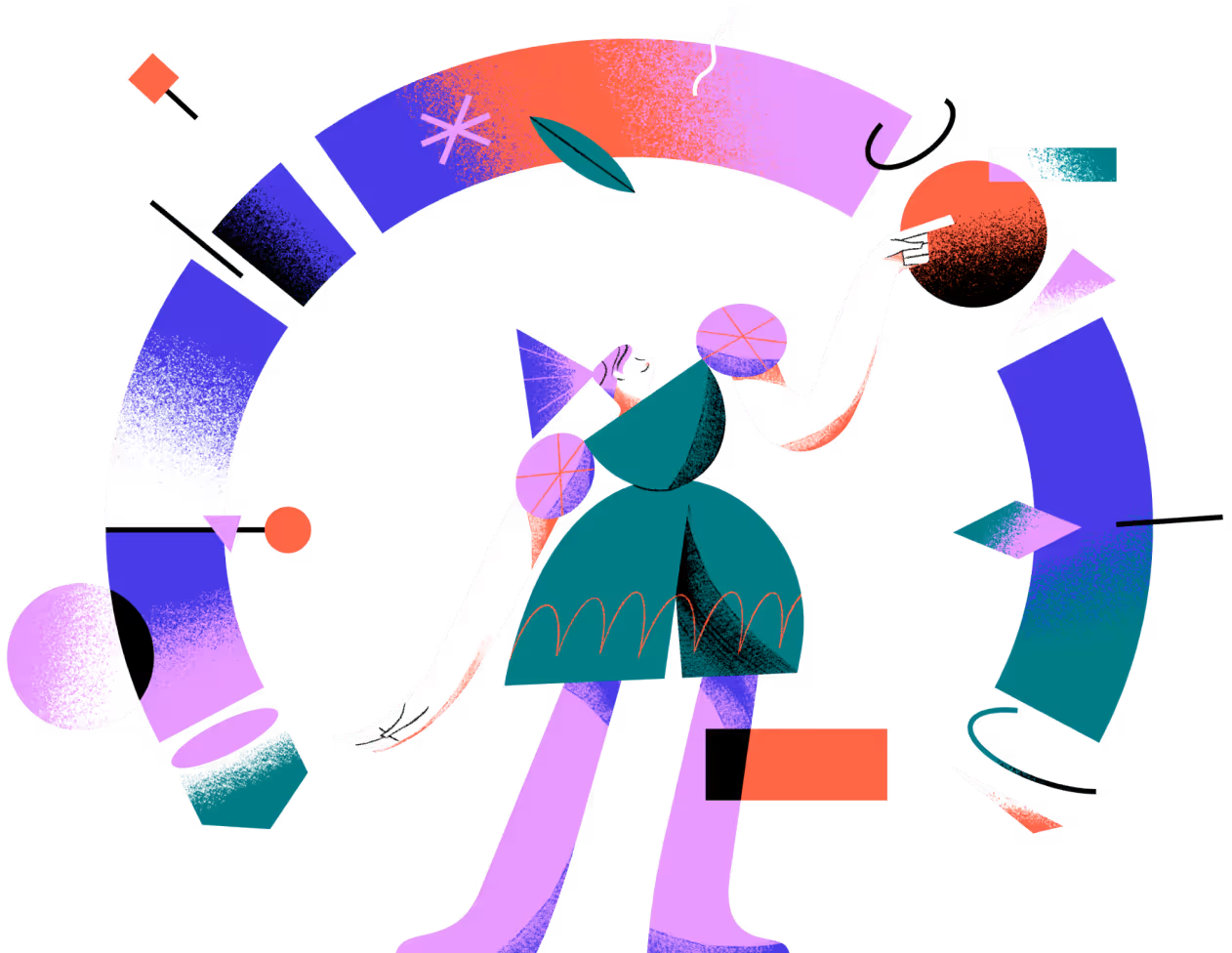Work culture is a hot topic right now. We've all heard a lot of chatter about how someone should show up at work. It's more than just physically showing up (or not), the conversation is about how much of our 'true' or 'authentic' selves we can and should bring to our work life.
Much of the focus has centered on defining and differentiating 'personal' and 'professional' ways of interacting within the workplace - with clients/patients, colleagues, supervisors, and outside vendors. And each workplace decides on, creates, and models these traits within their team culture. And if they aren't intentional about creating a culture, it can lead to confusion, unclear boundaries and expectations, and and overall lack of safety.
We can't speak to the 'right' way of bringing ourselves to work, but we can speak to OpenTent's intentional choices, our leadership model, and what teammates think and feel about working with us.
This is an area our COO, Sara Habib, is very passionate about. She came to OpenTent with a knack for operations and a heart for creating a strong workplace culture. She believes that establishing a rock solid foundation of trust is incredibly important. Without it, people cannot feel safe to share, grow, collaborate, build, or innovate. A lack of trust impedes communication, including feedback, which is a critical part of any relationship. So, Sara and the leadership team (we call them the A Team - short for "Accountability Team") have spent time figuring out what focus areas make sense in creating a great work culture.
These are four components OpenTent believes create a safe work culture:
- Instituting Systems that Support Feedback. We can't just talk about it, we have to teach, model, and practice giving and receiving feedback. We have to train teammates on what it is, how and when to give it, and provide the opportunities for those important conversations to happen.
- Promoting Vulnerability. Yes, vulnerability has a very important place at work. Teammates have to be willing to let people see the real them. This starts at the top with the leadership of the organization setting good boundaries, being themselves and making good connections. No matter how 'senior' you are, showing up as your whole self creates space for others to follow suit AND THE WORK STILL GETS DONE.
- Creating Rituals & Rhythms. A way to promote vulnerability and feedback is through an expected cadence of team events. Teammates need intentional spaces to share company and personal achievements, especially in a remote environment. Dedicated recurring team building that is REAL, and includes things that people enjoy doing together to continue to establish relationships and create shared experiences. This looks like creating mandatory time together on zoom each week for non-work connection.
- Being Clear and Aligned on Organizational Vision. When everyone wants the same result, trust is further established and everyone has clarity on where they are and where they are going. Leadership has to continually provide insight on the vision for the distributed team environment and ensure buy-in at all levels.
And here's what we do to make it happen:
- We work to make the feedback loops clearly defined and explicit, so that folks know where it's coming from and who they can expect to help them learn their role.
- We strive to create an environment where anyone can say what they need to say to anyone, regardless of seniority. We do this by frequently learning and talking about feedback itself, encouraging it, and creating policies around it. We also iterate when it's not working.
- We notice when feedback is being delivered poorly, is unexpected, or provides fear to avoid the system breaking down and the erosion of trust. If this happens, we bring people together, have intentional conversations, and recognize that all human beings have the same emotions of shame, anger, fear, elation. We spend time connecting more with those feelings and why they came up.
- We create and adjust our systems and go back to exploring vulnerability when needed, even when it feels cumbersome, emotional, and overwhelming. We know the reward is on the other side.
- We know the value of in-person time and shared experiences and create rituals to make it happen. Executing a yearly retreat and advance (see article here) ensures teammates can bond in person to sustain them through more challenging times.
- We make space for new ideas and teammate contributions from day one. We believe our 'new' teammates are bringing value right away and they don't have to 'prove it' before we listen or implement their ideas.
- We model vulnerability through ice breakers that go deeper than traditional questions. We expect leadership to respond first to set the example.
And though we think it's going pretty well, our Brand Journalist also spent some time talking to a new(er) teammate, Lexie Mallow, to ask about her experience and thoughts on safe work culture.
Lexie came to OpenTent from a very different work environment. Though the organizational goals were supportive and liberal, the internal culture was competitive. And Lexie found herself masking the parts of her that didn't seem to fit, the goofy, fun, and friendly side that uses humor to connect to others. She felt stuck in a box of elite 'professionalism' and competition, which is a breeding ground for mistrust and inauthentic interactions.
Coming to OpenTent she describes feeling like "a shelter dog" in that she has had to ease into being less protective with herself. Though she was hired for a technical role (Solutions Engineer to be precise!), she was initially careful not to show too much of her creative side so that she would not be seen as 'off task'. But actually, the opposite happened. During a team meeting, she took notes by way of doodling and drawing, and rather than discourage this type of involvement, the team was in awe of her creativity and asked her to post them to Slack so others could feel encouraged by using creativity in project work.
Lexie describes OpenTent as having a "knack for hiring people with high EQ (emotional intelligence)" and feels that their commitment to creating a psychologically safe work environment starts with their hiring values and prospective employee vetting process. She also talks about how trust is critical to authenticity and that OpenTent has a good balance of structure and flexibility in organizational policies that allows for and protects trust. Policies like Unlimited PTO and flexible 'Office Hours', which she says "show they trust us, think of us as full humans, and are not interested in micro-managing us".
Though creating a safe work culture is a practice that is ever evolving and never really 'done', overall, the message feels clear: OpenTent wants people to be themselves, their 'whole' selves. Leadership believes in it, teammates feel it, and clients get big beautiful results because of it.
To learn more about OpenTent's way of Working Out Loud, get in touch here!












